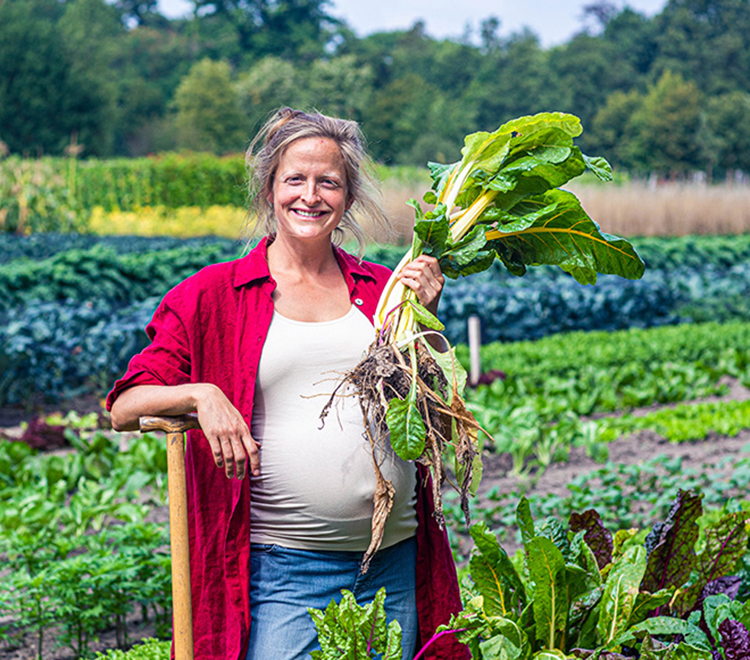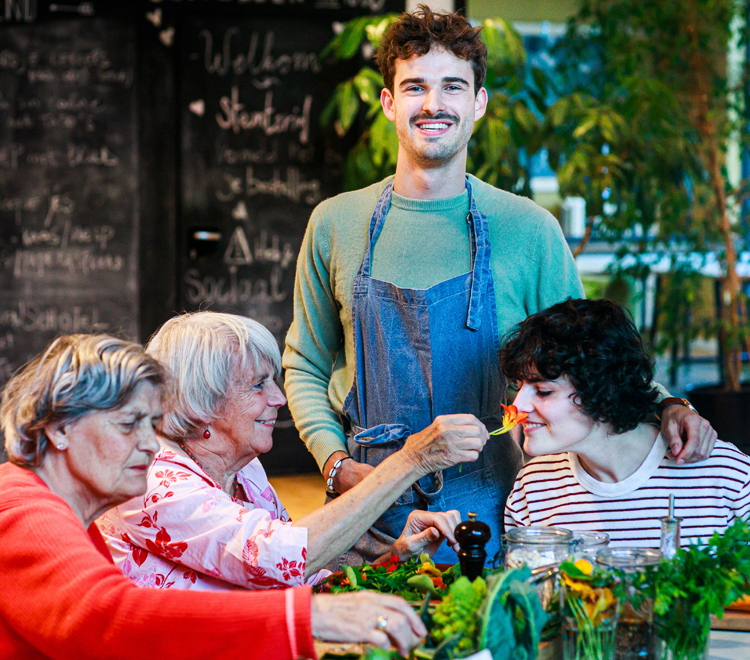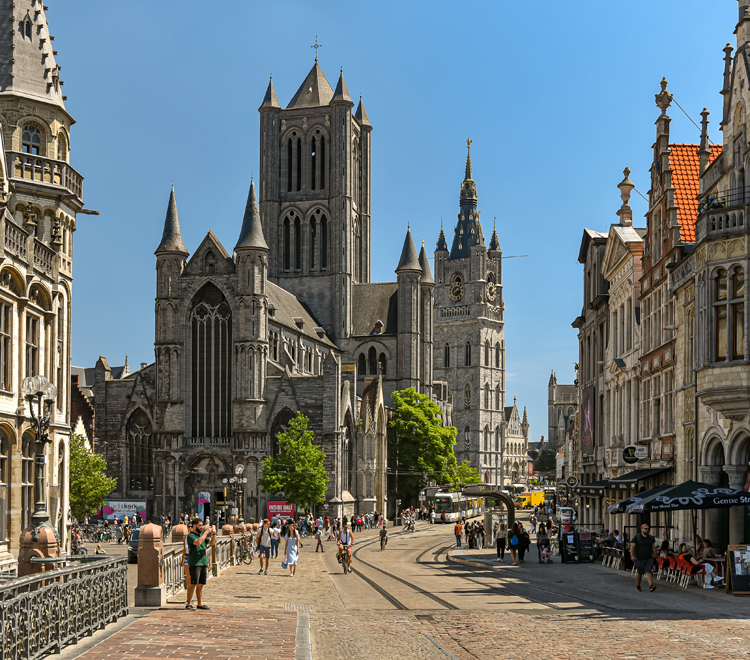The Ghent en Garde initiative aims to provide sustainable food accessible to all inhabitants of the city. To achieve this goal, a variety of actions have been implemented, but they have not been mapped systematically. This living lab offers an opportunity to create a coherent policy for all stakeholders within the city.
In the first phase, food initiatives are being mapped to identify areas where there is a lack of access or knowledge about sustainable and healthy food.
In the second phase, the initiative seeks to increase access to sustainable food for people with low incomes. Several organizations in Ghent are already using various methods, such as double pricing, free contribution or solidarity systems. Other organizations are exploring ways to utilize such systems to ensure that people with low incomes are also able to benefit from their services. Our goal in the living lab is to increase the number of low-income individuals who can access the double pricing system in various sectors of the food system, such as retail, hospitality industry, farmers and schools.
To achieve this, we plan to create additional offers and implement promotional and marketing strategies
Who we would like to support
The primary focus of our living lab is to assist individuals with limited financial resources initially focusing on two specific groups:
- People with a yearly income that is below 25.291,73 € (increased with 4.682,19 € per extra family member). These individuals are officially recognized as having a low income and are entitled to lower prices for healthcare, food support and certain leisure activities. Henceforth, we shall refer to individuals in this category as ‘officially recognised as having a low income’.
- People with a yearly income that is above 25.291.73 € but cannot afford market prices for food. We refer to these individuals as ‘not officially recognised as having a low income’.
What’s coming next
We will establish a working group within the Food Council that will help define a strategy for our Living Lab.
We will map out all the food initiatives and listing the various pricing systems for each sector. In addition, we will identify sustainable food initiatives that aim to offer affordable options for low-income individuals. We will conduct surveys to understand how stakeholders are using their offerings, the number of low-income individuals utilizing their services versus other customers, and their overall evaluation of the offer.
We aim to encourage the exchange of knowledge and best practices to improve existing systems and support organizations that wish to implement a solidarity system by providing training, consultancy, and experience.
Local Food Challenges
With the rise in food prices and the ongoing energy crisis, individuals with a low income are forced to allocate a l a significant portion of their earnings towards food expenses. This has resulted in the perception that sustainable and healthy diets are only accessible to the affluent population. As a consequence, daily access to nutritious and sustainable meals is not a reality for many individuals in this predicament.
With the rise in food prices and the ongoing energy crisis, individuals with a low income are forced to allocate a significant portion of their earnings towards food expenses. This has resulted in the perception that sustainable and healthy diets are only accessible to the affluent population. As a consequence, daily access to nutritious and sustainable meals is not a reality for many individuals in Ghent.
Living Lab Actions
Actions in the Living Lab include:
- Mapping the solidarity systems of all stakeholders, including how they describe their clients' profiles, the number of users from the two target groups, and the evaluation of the offer by both users and stakeholders.
- Stimulating and facilitating the use of solidarity systems in various settings such as farm sales, restaurants, retail, schools, and more. This involves mapping existing systems, sharing best practices and learnings, optimizing current systems, and identifying the most effective conditions for their implementation. We also offer support to organizations that want to implement a solidarity system, providing experience, training, and consultancy to ensure successful implementation.
- Ensuring the target groups are aware of the available solidarity systems and can easily access them. We will disseminate information about the systems on various platforms, conduct research to determine how the target groups seek information, utilize the channels that the target groups use to search for information and communicate information about the food access points, and provide information to the intermediaries who redirect the target groups to these systems.
Monitor and evaluate the use of the offer
Get to know the region
Ghent is a historic city in the Flemish Region of Belgium, located about halfway between Brussels and Bruges. It is the third largest city in Belgium and is known for its beautiful medieval architecture, canals, and rich cultural heritage.
The city is home to several institutions for higher education, including Ghent University, which is one of the largest and most prestigious universities in Belgium.
The city is also a hub for sustainable development, with initiatives such as the car-free city center, and the use of renewable energy sources.
Ghent has a diverse economy, with industries such as technology, healthcare, and creative services. The port of Ghent is the third largest of Belgium and connects with the western Scheld and the North Sea.
As of 2021, the population of Ghent is estimated to be around 260,000 people.
Ghent is a multicultural city, with people from a variety of ethnic and cultural backgrounds. As of 2022, around 36,7% of the city's population is of non-Belgian origin (based on origin of parents).
(text source: Wikipedia)
Frequently asked questions
- When was the living lab established, and how has it evolved over time?
In 2013 the City of Ghent launched ‘Ghent en Garde’, a food policy that includes 5 stategic goals to pave the way for sustainable food system for Ghent. These goals were decided and based on various stakeholder discussions, input form the city administration and political agreement. Inspired by a similar approach in Bristol and Toronto, the City of Ghent set up a ‘food council’. The Gent en Garde food policy council consist of about 25 members from various sectors, i.e., agriculture, associations, knowledge institutions and commerce. The policy group acts as a sounding board for the city’s policy on food.
Nowadays the food strategy consists of 3 stategic goals:
A shorter, more visible food chain
Make sustainable food accessible for everybody
Reduce food waste- Who are the key stakeholders involved in the living lab?
The Living Lab consists of various stakeholders who are working towards providing sustainable and affordable food options for low-income individuals:
Hospitality industry:
- Social restaurants: 9 are recognised by the city of Ghent and receive funding to offer low prices for their clients officially recognised as having a low income.
- Regular restaurants: for clients not officially recognised as low income: Karoot (Free contribution), Kaffie is Kaffie (double pricing system), Enchanté (voluntary contribution of clients).
Farmers:
- The farmers market cooperation is researching the potential implementation of a double pricing system for (all) people with a low income.
- CSA farmers are researching how they can lower their prices for (all) people with a low income.
Retail:
- VLAS (a cooperative supermarket that is set to launch) is researching a solidarity pricing system for (all) people with a low income.
- The Social Grocery Store is receiving funding to offer food below the market price, and are redistributing food surpluses for clients officially recognised as having a low income.
- Super Merkade: a solidarity supermarket with a double pricing system for clients officially recognised as having a low income.
Schools:
- Schools run by the city: automatic reduction for school meals for children in a family officially recognised as low income.
- Brooddoosnodig: making sure no child is hungry in school (voluntary contribution of families)
City of Ghent
Department of Environment and Climate
Hannelore Herreman
www.stad.gent
Testimonials from our community
How Ghent Is Rethinking Its Food System | FEAST Living Lab
In our three-part video series, we take a look at what our FEAST Living Lab in Ghent is doing. We will introduce the local people involved and show how they help communities and people who need it most to get healthy food.
All the videos are in Dutch, with subtitles in both Dutch and English.
Watch other videos of the Ghent Living Lab series:
Part 2. Why Access Matters: Ghent’s Farmers’ Marke...
Part 3. Opportunities in a Food Swamp: Making Fair...



